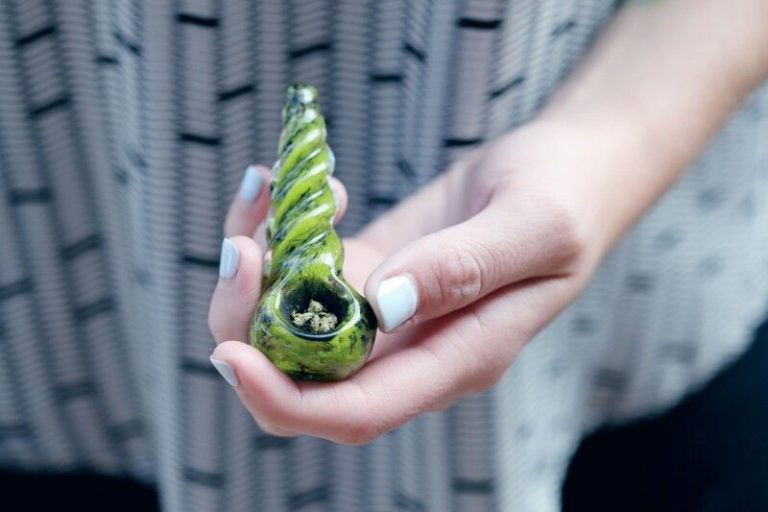
Ohio’s drug possession laws are some of the harshest in the country. Even the lowest category of felony possession carries up to a year behind bars.
If you face felony 5 drug possession in Ohio, the likely outcome could be grim. In fact, a conviction can send you to jail or prison and cost you thousands of dollars in fines, fees, and court costs.
In this blog, you will learn about drug possession offenses and penalties in Ohio. The state classifies drug possession charges according to several factors, including the amount and type of drug involved.
Knowing the possible outcomes for fifth-degree felony drug possession offenses helps you make informed decisions about your case. For example, you can compare the statutory maximum term for fifth-degree felonies to any plea offer your criminal defense attorney receives.
The Dayton criminal defense lawyers from Gounaris Abboud, LPA understand your concerns and fears about the criminal process and will guide you through it. Contact us online or call 937-222-1515 today for a free consultation.
What Is Felony 5 in Ohio?
Ohio felony crimes fall into five levels. The state’s laws define the specific sentencing range for each felony category. The most serious of the felony classifications is a first-degree felony, and the lowest is a fifth-degree felony.
What is an F5 felony in Ohio? Fifth-degree felonies fall into the lowest category of felony offenses. They are just above misdemeanor offenses. On the one hand, fifth-degree felony offenses leave judges a lot of discretion rather than requiring them to impose a mandatory minimum sentence. In fact, depending on the circumstances, a conviction for a fifth-degree felony may result in mandatory probation. On the other hand, you will face other consequences for having a felony on your criminal record, such as inability to find employment and harsh penalties for any future felony conviction.
Drug possession means you have knowledge and control over illegal drugs. Prosecutors must show you knew you had them and that you had more than mere access to the drugs by being where drugs are found. Many people believe “ownership” is required. However, this is a falsehood.
How Does Ohio Classify Possession of CDS?

In Ohio, charges for possession of a controlled dangerous substance (CDS) are based on the type of substance and the amount you had in your possession.
Ohio classifies different substances into schedules, depending on the comparative danger of the drug based on its propensity for addiction and abuse.
- Schedule I: Drugs pose the highest level of risk. These are substances that have no identified medical use yet pose the highest risk for abuse, such as ecstasy, LSD, and heroin.
- Schedule II: Drugs, although slightly less dangerous, also pose a high risk for addiction and abuse, including cocaine, methamphetamine, oxycodone, and fentanyl.
- Schedule III: Drugs pose a lower risk for addiction, including ketamine, anabolic steroids, and medications containing less than 90 milligrams of codeine per dose.
- Schedule IV: Drugs pose an even lower risk for addiction, including benzodiazepines (e.g., Xanax), Valium, Ambien, and Ativan.
- Schedule V: Drugs pose the lowest risk for abuse. This category contains medications used by prescription for coughs, pain, and gastric conditions, including Lyrica, codeine cough syrups, Lomotil, and Parapectolin.
The level of charges you face will depend on the type and quantity of CDS you possess. You may face more serious charges if you have prior possession convictions or if any aggravating circumstances apply in your case.
In classifying drug offenses, the laws focus heavily on the amount of drugs possessed. A bulk amount means a large quantity of drugs that suggests you may have possessed them for distribution. Bulk amounts include at least ten grams of opiates, at least 30 grams of hallucinogens, stimulants, or depressants, or at least 16 grams of anabolic steroids. Bulk amount offenses fall in the higher categories of drug offenses, typically as first-degree felonies, second-degree felonies, and third-degree felonies.
Smaller amounts imply drug possession for personal use.
Fifth-degree felonies include possession of:
- Less than the bulk amount of schedule III, IV, or V drugs with a prior drug conviction.
- Less than five grams of cocaine.
- 200 to 999 grams of marijuana.
- Fewer than ten doses of LSD.
- Less than one gram of heroin or fentanyl.
These numbers refer to the amounts in your possession, not the total amount accessible.
What Are the Consequences of a Felony 5 Drug Conviction?

Even though fifth-degree felonies fall into the lowest level of Ohio felony crimes, they can carry heavy consequences. A person convicted of even the lowest degree felonies will have their crimes appear on a criminal background check.
A criminal history can affect:
- Housing, since many landlords will not rent to anyone convicted of any degree of felonies.
- Employment with employers who will not or cannot hire felons.
- Professional licensing — many licensing boards suspend licenses for felonies.
Additionally, you face risks associated with future brushes with the law. Many judges include community control (another name for probation) in sentences for those convicted of drug crimes. Any technical violations of community control conditions could land you in jail.
Moreover, if you ever get arrested again, your fifth-degree felony drug conviction will count as a prior felony that could classify you as a repeat offender eligible for an increased sentence.
Penalties and Sentencing for Fifth-Degree Possession Charges in Ohio
Upon conviction for felony 5 drug possession in Ohio, you face penalties that include:
- Six to 12 months in prison.
- Up to a $2,500 monetary fine.
- Up to five years of community control (probation).
You also face the potential for driver’s license suspension as well as the possibility of having a permanent criminal record. You could lose your right to hold professional licensure along with other key civil rights such as the right to vote or possess a firearm.
Seek legal counsel for drug charges in Dayton. Contact us today for a confidential consultation.
What Are Possible Defenses for Fifth-Degree Possession Charges in Ohio?
If prosecutors pursue a fifth-degree felony charge of possession, you have several possible defenses.
Some defenses your legal team can present to avoid or reduce a fifth-degree felony conviction include the following:
✓ You thought you possessed something other than illegal drugs.
✓ Someone stashed the substances in your car or home without your knowledge.
✓ You have a valid prescription for the medication found.
✓ The police found the substances during an illegal search.
✓ The police incorrectly weighed or recorded the weight of the substances found.
✓ The authorities entrapped you into possessing something you would not otherwise possess.
The defenses available to you will depend on the circumstances of your arrest and the allegations against you. In many cases, your lawyer uses a defense to get charges dropped. In other cases, your defenses will persuade a prosecutor to cut a plea deal or a jury to acquit.
Final Thoughts
Fifth-degree felony drug possession charges are considered “minor drug offenses” under Ohio law. Whether you plead down to a fifth-degree charge from first-degree felonies, second-degree felonies, or other higher-degree felonies, or you were overcharged for a misdemeanor offense, you need to know the potential penalties you face.
Our experienced criminal defense lawyers will help explain your options and identify possible defenses. In many situations, prosecutors will reduce or dismiss your charges once we explain the mitigating factors.
We tailor your legal defense to the details of your case and fight hard to protect your rights. Contact Gounaris Abboud, LPA today to talk with one of our Dayton drug possession lawyers to protect your future.




